When you are looking to buy a projector, one of the most important factors you consider is how long it will last. It’s an investment, and you want to make sure it will be worth your money in the long run. In this comprehensive guide, we will answer all of your questions about how long a projector lasts. We’ll discuss common problems and solutions, as well as ways to extend the life of your projector. By following our tips, you can be sure that your projector will last for years to come!
What Is a Projector Lamp?
There are two main types of projector lamps:
- UHP (ultra-high performance)
- UHE (ultra-high efficiency).
UHP lamps are more powerful and have a shorter lifespan than UHE lamps. They are typically used in business and professional settings, where images need to be clear and bright. UHE lamps are not as powerful as UHP lamps, but they last longer. They are often used in home theater settings, where image quality is less important than projector longevity.[6]
Do Projectors Have A Lifespan?
The answer is both yes and no. A projector does have a lifespan, but it can be extended with proper maintenance and handling. Additionally, the lifespan of a projector is not always accurate because there are many variables that affect it.
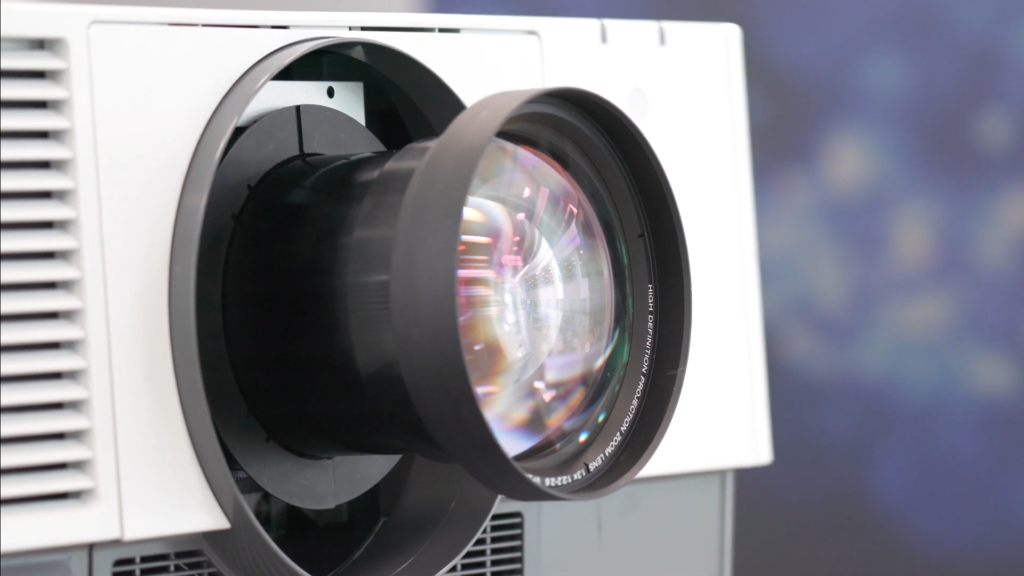
For example, if you use your projector for long hours every day, then it will likely have a shorter lifespan than if you only use it occasionally. This is because constant use will cause wear and tear on the projector’s components. However, if you take good care of your projector and don’t use it too often, then you can expect it to last for many years.[2]
Typical Projector Lamp Life
The typical lifespan of a projector is around 4000-5000 hours. However, this number can be affected by a variety of factors, including:
- The type of projector you have
- How often you use your projector
- What kind of environment you keep your projector in (e.g., dusty or humid conditions will shorten the lifespan of a projector)[2]
Checking the Usage Time
When you first get a projector, it’s important to check the usage time. This is how long the projector will last before it needs to be replaced. The usage time can be found in the manual or on the manufacturer’s website.[2]
How Long Does The Mini Projector Last?
The average lifespan of a mini projector is about 20,000 hours. This number varies depending on the brand, model, and usage habits. However, with proper care and maintenance, your mini projector can last much longer! Here are some tips to extend the life of your mini projector:
- Avoid leaving the projector on for extended periods of time without use. If you know you won’t be using the projector for a while, it’s best to turn it off.
- Be careful when handling the projector. Dropping or bumping it can damage internal components and shorten its lifespan.
- Clean the lens regularly to keep it free of dust and debris. This will help maintain picture quality and prevent overheating.
- Keep the projector in a cool, dry place. Extreme temperatures can damage the projector and shorten its lifespan.[5]
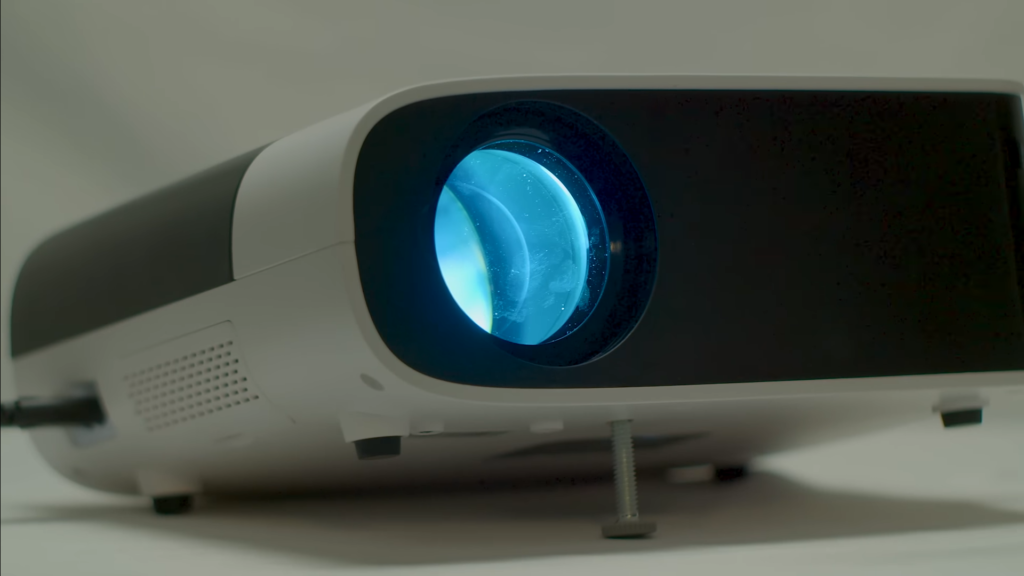
How to Extend the Life of Your Projector
Never Block Your Projector’s Vents
One way to immediately shorten the lifespan of your projector is by never blocking its vents. The projector needs to be able to dissipate heat, and if you block its vents, it will overheat and break down much faster than normal. So make sure to keep it in a well-ventilated area!
Another way to increase the lifespan of your projector is by using a dust cover. A dust cover helps protect the projector from dirt, dust, and other debris that can shorten its life.[3]
Make Sure to Clean Out Your Projectors Air Filter
One of the best things you can do to prolong the life of your projector is to make sure that its air filter is clean. A dirty air filter will cause your projector to overheat, which will shorten its lifespan. Check the air filter every few months and clean it as needed.
Another way to help keep your projector cool is to place it in a well-ventilated area. If possible, avoid placing it in direct sunlight or near a heat source. These tips will help ensure that your projector lasts as long as possible.[3]
Don’t Touch the Projector Lamp With Your Bare Hands
The oils from your skin will shorten the life of the projector lamp. Whenever you need to replace the lamp, be sure to use gloves or a clean cloth.
It’s also important to keep the area around the projector clean. Dust can accumulate on the lens and cause image quality problems. Cleaning the lens regularly will help extend the life of your projector.[3]
Don’t Keep it On 24/7
You might be wondering if it’s okay to keep your projector on all the time. After all, if it’s not in use, why turn it off? The reason is that leaving a projector on for extended periods of time can shorten its lifespan. Projectors generate heat when they’re turned on, and this can lead to internal components failing prematurely. So, it’s best to turn off your projector when you’re not using it.[4]
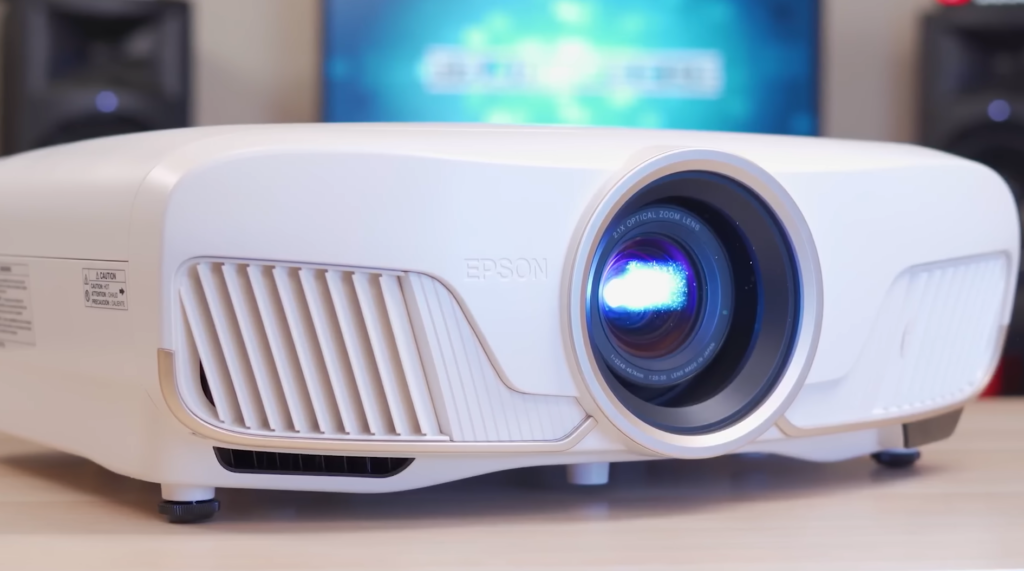
Overheating and Cool Down Time
Just like any other electrical appliance, if a projector overheats it will shut down. This is to prevent any damage to the internal components. When this happens, it’s important to give the projector time to cool down before turning it back on. Depending on the model, some projectors have a built-in cooling fan that will help with this process.[4]
Keep it Dust-Free
One of the main ways to keep your projector running smoothly is by keeping it dust-free. Dust can accumulate on the lenses and other components, causing the projector to overheat and eventually break down. To avoid this, make sure to regularly clean your projector with a soft, dry cloth. You can also use compressed air to blow away any dust that’s hard to reach.
Another way to keep your projector running for a long time is by using it regularly. If you only use your projector once in a while, the parts can start to degrade from disuse. To prevent this, try to use your projector at least once a week, even if it’s just for a short period of time.[4]
Economy Mode
One way to make your projector last longer is to use economy mode. This setting dims the lamp, which in turn, extends its life. Of course, you’ll have to sacrifice some brightness and image quality, but it’s a small price to pay for a longer-lasting projector.
To find out if your projector has an economy mode, consult the manual or contact the manufacturer. Once you’ve located the setting, try it out to see if it makes a difference for you. If not, feel free to turn it off and enjoy your usual projector settings.[4]
Extreme Temperatures
Just like any other electronics, your projector is going to be affected by extreme temperatures. If it gets too hot, it can overheat and shut down. If it gets too cold, the components can contract and stop working properly. That’s why it’s important to keep your projector in a temperature-controlled environment.
If you do need to use your projector in extreme temperatures, there are a few things you can do to help protect it. First, make sure that the room is well-ventilated. Second, use a heat sink or cooling fan to help regulate the temperature. And finally, consider using a humidity control system to prevent condensation from forming on the lens or other components.[4]
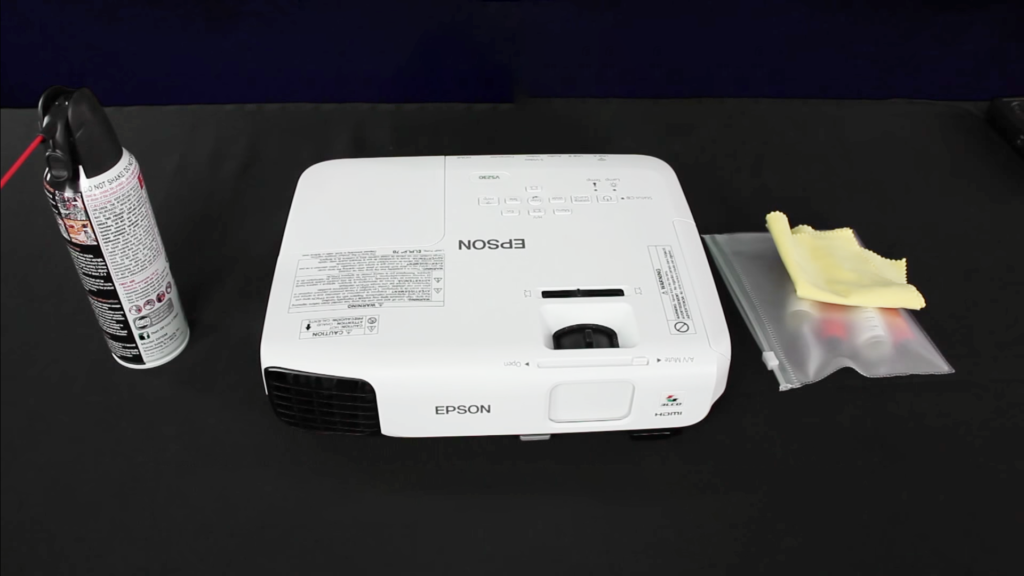
Things Forgotten About When Buying A Projector
Projector Lamp & Maintenance Costs
- The lifespan of a projector is determined by how many hours the bulb is used.
- A rule of thumb is that for every one hour of use, the bulb will last approximately 1000 hours.
- This means that if you use your projector for two hours every day, the bulb will last approximately 500 days or just over one and a half years.
- However, this number can be significantly lower if the projector is used in a hot environment or if it’s not properly ventilated.
It’s important to factor in replacement costs when budgeting for a projector. A replacement lamp can cost anywhere from $100 to $600, so it’s important to factor this into your budget. Additionally, many projector manufacturers require that you use their specific brand of lamp, so be sure to factor this into your budget as well.[1]
Warranty
The average warranty for a projector is two years, but some manufacturers offer up to five years of coverage.
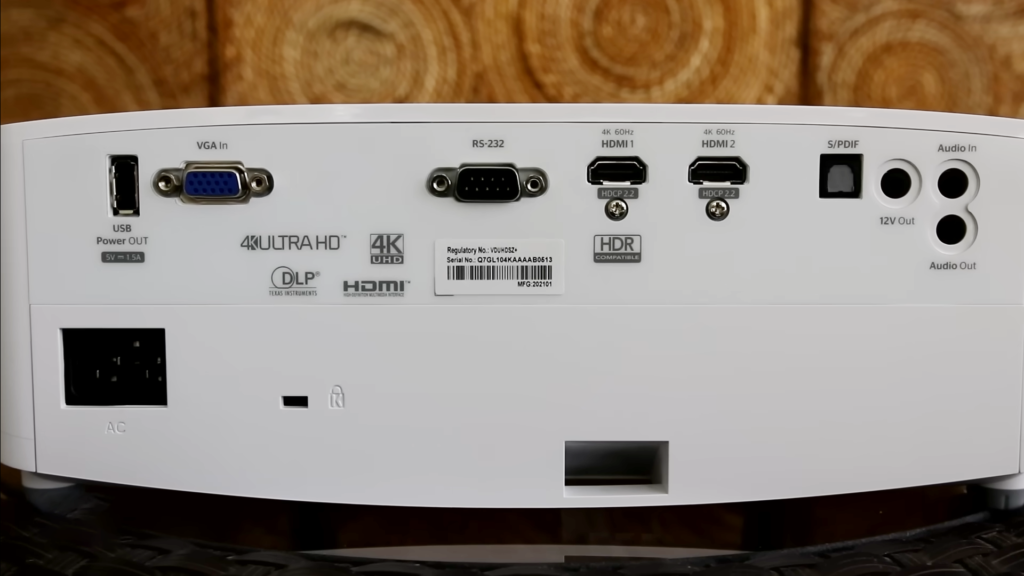
Energy Efficiency
One of the most important things to consider when purchasing a projector is its energy efficiency. A good rule of thumb is that the lower the power consumption, the better. Not only will this save you money on your electric bill, but it will also help extend the life of your projector.
When looking at projectors, you’ll want to pay attention to two different numbers:
- The first is the lumens rating, which measures how much light the projector emits. The higher the lumens rating, the brighter the image will be.
- The second number is the wattage rating, which measures how much power the projector uses. The lower the wattage, the more energy efficient it is.[1]
Types of Home Theater Projectors
Standard Projector
These projectors are typically used in business settings or for presentations. They are not as bright as other types of projectors, so they are not ideal for use in a home theater setting.[4]
Standard projectors typically cost between $200 and $1000.
LCD Projectors
LCD projectors have a typical lifespan of around 20,000 hours, but they can last much longer with proper care and maintenance. Here are a few tips to help you get the most out of your LCD projector:
- Dust off the lens regularly with a soft, dry cloth.
- Avoid using your projector in humid or dusty environments.
- If possible, keep your projector in a temperature-controlled room.
- Be careful when handling the projector – don’t drop it or bump it around too much.[4]
LED Projector
The average lifespan of an LED projector is 20,000 hours. This means that if you use your projector for two hours every day, it will last approximately 27 years. Of course, this is just an estimate and your projector may last longer or shorter depending on how well you take care of it.
To extend the lifespan of your LED projector, be sure to keep it clean and dust-free. Also, avoid leaving it on for extended periods of time as this can shorten its lifespan. If you follow these simple tips, your LED projector should give you many years of enjoyment.[4]
Laser Projector
When it comes to projectors, there are two types: laser and bulb. Both have their pros and cons, but which one should you choose? Here’s a quick rundown of each type:
- Laser projector: A laser projector uses a laser to create the image.
Pros – no need to replace bulbs, can last up to 20,000 hours.
Cons – more expensive than bulb projectors.
- Bulb projector: A bulb projector uses a filament lightbulb to create the image.
Pros – less expensive than laser projectors.
Cons – need to replace bulbs every few thousand hours.[4]
DLP Projector
DLP projectors have a lifespan of around 20,000 hours. However, this number can be affected by how often the projector is used and the conditions under which it is used (such as temperature and humidity). For example, if a DLP projector is used for eight hours every day, it will last for about ten years. If a DLP projector is only used for two hours every day, it will last for about 25 years.[4]
Other Benefits
In addition to providing a clear and large image, projectors also offer several features that can’t be found on traditional TVs. For example, most projectors have the ability to connect to multiple devices at once, making them ideal for presentations or watching movies with friends. Additionally, many projectors come with built-in speakers, which can provide better sound quality than your TV’s speakers. Finally, some newer models of projector even have wireless capabilities, so you don’t have to worry about tangled cords.[3]
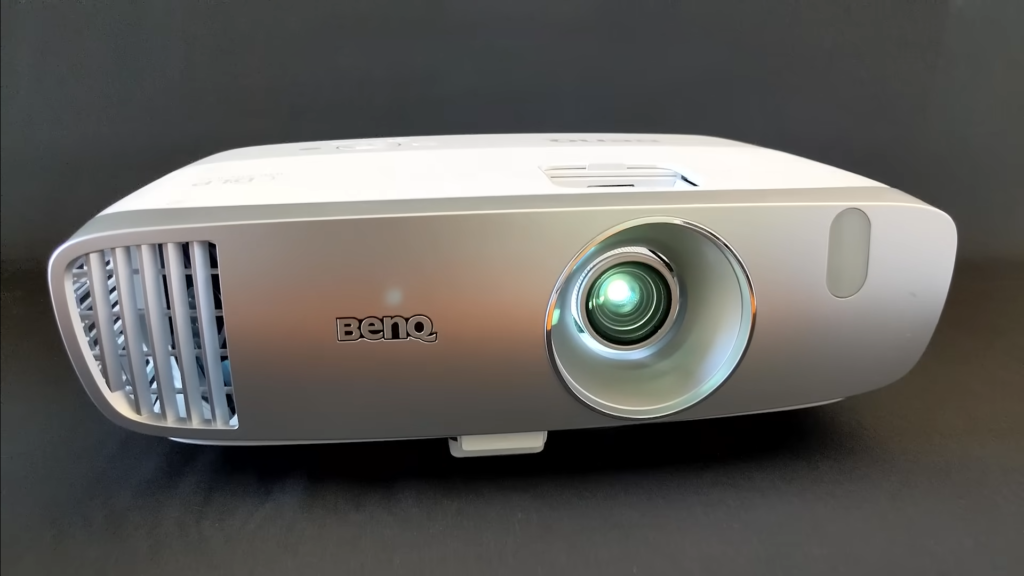
So, if you’re looking for a way to upgrade your home theater setup or improve your presentation skills, a projector may be the way to go.
Projector Lifespan Vs TV
The lifespan of a projector is typically much longer than that of a TV. For example, an LCD or DLP projector can last up to 15,000 hours while an LED projector can last up to 30,000 hours. This is due to the fact that projectors don’t have as many moving parts as TVs. Additionally, projectors don’t suffer from image retention like TVs do.
So, if you’re looking for a display option that will last you a long time, a projector is definitely the way to go!
How Can You Make Your Projector Lamp Last Longer?
Here are some tips to get the most out of your projector lamp:
- Choose a high quality lamp. Cheap knock-offs might save you a few bucks up front, but they won’t last as long and could potentially damage your projector.
- Avoid using economy mode. This mode will dim the image and lower the color temperature in an effort to conserve power, but it also puts unnecessary stress on the lamp. Only use economy mode when absolutely necessary.
- Give your projector a break. If you’re using your projector for more than a couple hours at a time, it’s best to give it a break every so often. This allows the internal components to cool down and prevents overworking the lamp.
- Clean the filters. Dust and other particulates can build up on the projector’s air filters, which can restrict airflow and cause the projector to overheat. Cleaning the filters regularly will help keep your projector running cooler and prolong the life of the lamp.
- Keep it cool. Ambient temperature has a big impact on how long your projector lamp will last. If possible, try to keep your projector in a cool, well-ventilated area. Extreme heat or cold can shorten the lifespan of your lamp.[5]
FAQ
What kills a projector bulb?
The three main ways to kill a projector bulb are:
- Leaving the projector on too long. If you leave your projector on for more than 24 hours straight, it will greatly shorten the lifespan of your projector bulb.
- Turning the projector off and on too often. Every time you turn your projector off and then back on, it puts stress on the filament inside the bulb, which will shorten its lifespan.
- Not letting the projection cool down properly. When you first turn on a projection, there is a lot of heat that is generated inside the unit. If you do not let the projection cool down properly before turning it off, this will also shorten the lifespan of your projector bulb.
How often should you replace your projector?
The average lifespan of a projector is about 5000 hours. However, this number will vary depending on the make and model of your projector as well as how often you use it. If you use your projector regularly, you may need to replace it sooner than if you only use it occasionally.
To get the most out of your projector, it’s important to follow the manufacturer’s recommendation for replacement bulbs. Replacing your bulb when needed will help extend the life of your projector.
What are the signs that a projector needs to be replaced?
There are several key signs that your projector may need to be replaced, including:
- The image is no longer as bright as it used to be
- The colors are fading or not as vibrant
- The image is starting to become distorted
- The projector is making strange noises
How Do You Know When It’s Time to Change Your Lamp?
The light source in your projector is what’s known as a “lamp.” It’s not actually a traditional light bulb, but it does need to be replaced periodically. When it’s time to replace your lamp, you’ll usually notice one or more of the following symptoms:
- The image quality is deteriorating. You might see more rainbow artifacts or “screen door effect.”
- The brightness of the image is dimming.
- The colors are starting to look washed out.
Useful Video: What Can You Achieve With A Projector Life Expectancy of 20,000 Hours?
Conclusion
We hope this guide has answered your questions about how long a projector lasts. As you can see, there are a lot of factors that can affect the lifespan of your projector. By taking good care of your projector and using it properly, you can extend its life and get the most value out of your investment. Thanks for reading!
References
- https://www.tvsproslc.com/blog/top-3-things-forgotten-about-when-buying-a-projector/
- https://thehometheaterdiy.com/lifespan-of-a-projector/
- https://entertainmentden.com/how-long-does-a-home-theater-projector-last/
- https://theaterdesire.com/how-long-do-projectors-last/
- https://projectorsbuzz.com/how-long-do-projectors-last/
- https://projectorninja.com/projector-lamp-life-101-how-long-does-your-projector-last/

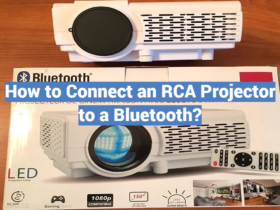


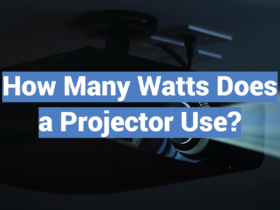
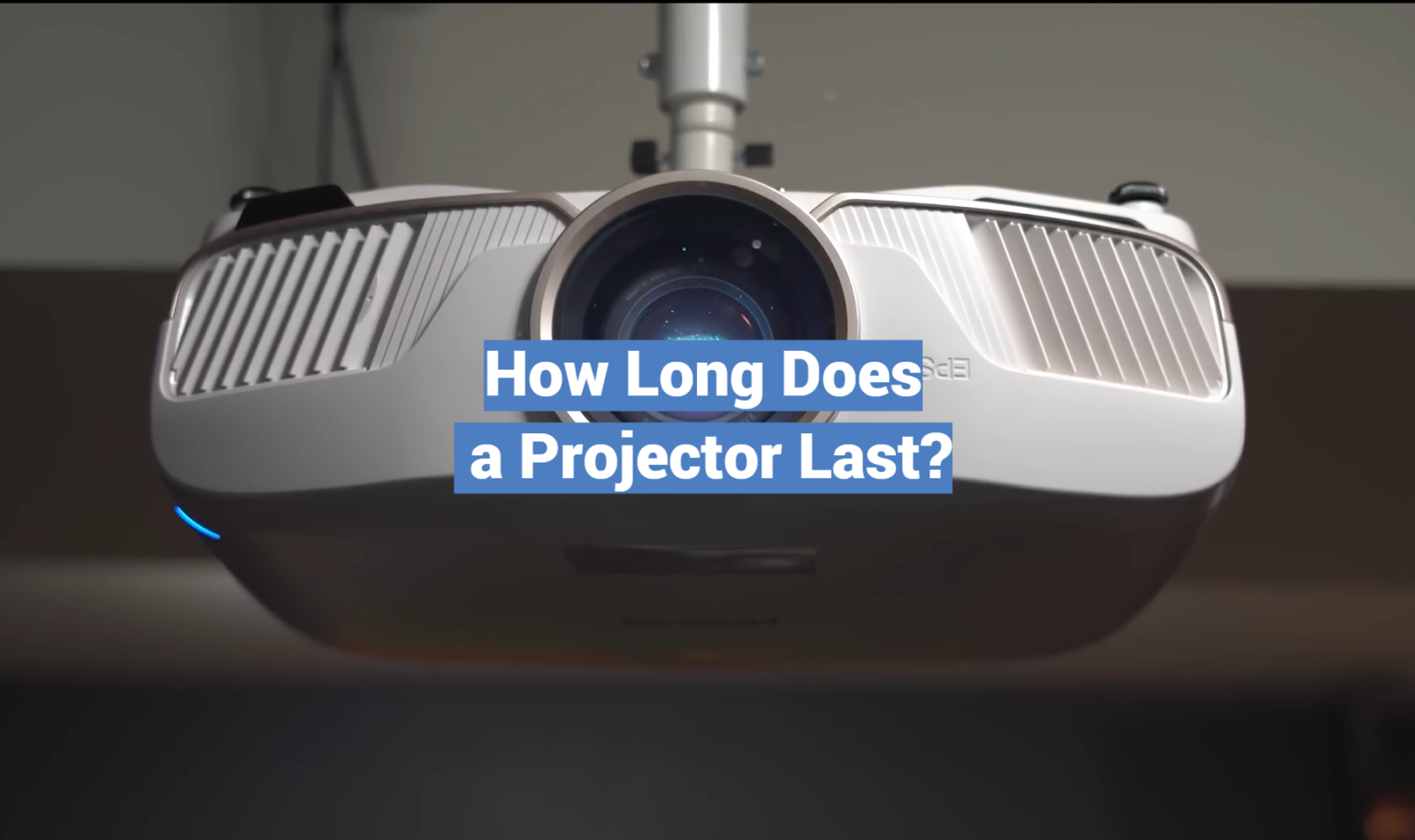

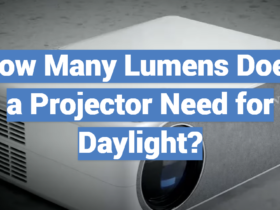
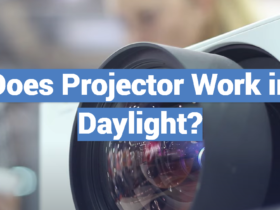
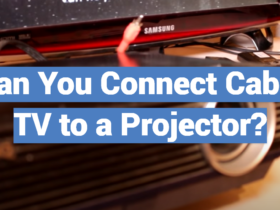
Leave a Review